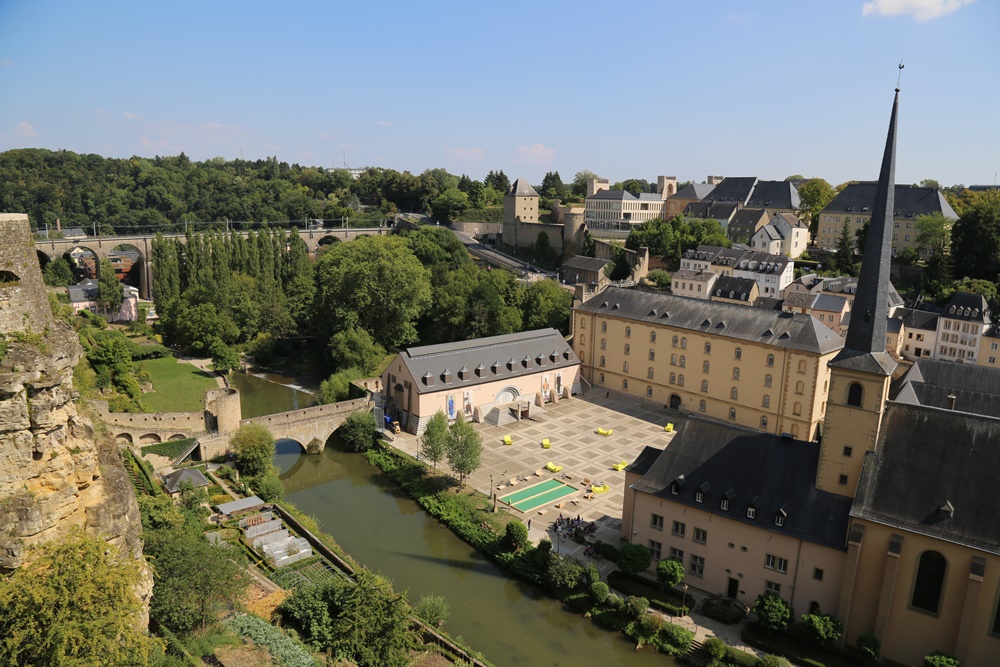Nestled in the heart of Western Europe, Luxembourg stands as a testament to the harmonious coexistence of rich history, economic prowess, and cultural diversity. Despite being one of the smallest countries in the world, both in terms of size and population, Luxembourg boasts a grandeur that transcends its modest dimensions. This landlocked nation, bordered by Belgium, France, and Germany, has carved a niche for itself on the global stage, blending a medieval past with a modern and dynamic present.
Historically, Luxembourg has been a strategic crossroads, with its origins dating back to the Roman era. However, it was in the 10th century that the County of Luxembourg emerged as a prominent entity, eventually evolving into the Grand Duchy we know today. The fortress of Luxembourg City, perched atop rocky cliffs, served as a linchpin in European geopolitics, witnessing conflicts and changes of power over the centuries. Its strategic location and formidable fortifications earned it the moniker “Gibraltar of the North.”
The 19th century saw Luxembourg navigating through the complexities of European politics. Its sovereignty was a matter of contention among neighboring powers, leading to the Treaty of London in 1867, which declared Luxembourg a neutral and independent state. This laid the foundation for the modern, neutral Luxembourg that values diplomacy and international cooperation.
Luxembourg City, the capital, encapsulates the nation’s historical legacy with its UNESCO-listed Old Town, where medieval structures like the Grand Ducal Palace and the Notre-Dame Cathedral stand alongside contemporary marvels. The city’s architecture mirrors its diverse influences, from Romanesque to Gothic, reflecting the many chapters of Luxembourg’s past.
Beyond its historical charm, Luxembourg is renowned for its economic prowess. The Grand Duchy has transformed into a global financial hub, earning the title of the “Gateway to Europe.” The success of Luxembourg’s financial sector is largely attributed to its strategic location, multilingual workforce, and a business-friendly environment. The nation’s commitment to financial innovation has also played a crucial role, with Luxembourg emerging as a leading hub for investment funds and a pioneer in sustainable finance.
Moreover, Luxembourg is home to a cosmopolitan population, with a significant percentage of residents hailing from various corners of the globe. The coexistence of Luxembourgish, French, German, and Portuguese cultures creates a vibrant tapestry that is evident in the country’s festivals, cuisine, and traditions. The Luxembourgish people take pride in their multilingualism, effortlessly switching between languages in their daily lives.
The nation’s commitment to education and research has positioned it as a knowledge hub. The University of Luxembourg, along with other research institutions, fosters innovation and academic excellence. Luxembourg’s investments in science and technology are not only evident in its academic institutions but also in the burgeoning space sector, where the country is actively participating in the exploration and exploitation of space resources.
In conclusion, Luxembourg’s story is one of resilience, adaptability, and success. From its medieval roots to its current status as a global financial and cultural hub, Luxembourg stands tall as a testament to the possibilities of a small nation with big ambitions. Its commitment to neutrality, economic innovation, and cultural diversity exemplifies the nation’s ability to navigate the complexities of the modern world while cherishing its rich heritage. As Luxembourg continues to evolve, it remains a captivating blend of the old and the new, a testament to the enduring spirit of this grand duchy.



